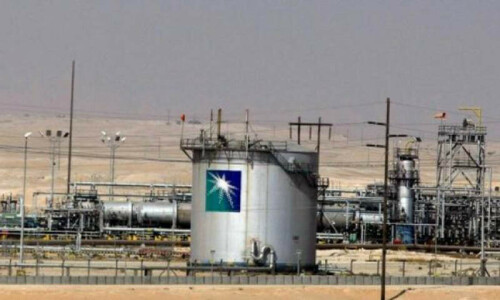Last Wednesday, farmers convened an All Parties Conference at Islamabad. Almost all major parties — PML-N, PTI, MQM and PPP — came to share farmers’ concerns and lamented the plight of agriculture.
They were able to exert pressure on the government to come up with more enduring solutions to the agriculture problems. All participants joined the chorus of demand. Sounds good.
They want the government to declare an ‘agriculture emergency’ and take a few steps immediately such as: abolish general sales tax on all farm inputs; defer trade of agricultural products with India till the government is able provide a level-playing field to the local farmers; slash diesel rates by 50pc; cut electricity rates to Rs5/unit for tube wells and take care of the rural marketing infrastructure.
Justifying their demand, the farmers claimed that crop output prices have fallen by 40-50pc in the last few years. They say cotton growers have suffered Rs170bn loss in production and another Rs48bn because of drop in prices. Only cotton has made the farmers poor by a staggering Rs218bn this year.
Potato growers lament they have lost Rs150bn because of price crash and paddy producers say they have suffered a loss of Rs35bn due to a similar trend.
The major disconnect between the farming community and the federal and provincial governments is highlighted by the absence of a long-term and sound agriculture policy
What justifies their demand for market reforms is that as soon as growers sold paddy, the prices jumped by a whopping 60pc within days. What worries farmers still more is the forecast by the Food and Agriculture Organisation (FAO) which sees the low commodity price trend continuing for the next few years. This is, and would be even more, disastrous for farmers and farming economy.
The government, on its part, is in a bind, unable to understand what more can be done even if a historic Rs341bn Kissan Package has failed to ameliorate the situation.
It has already cut the GST on pesticides and machinery to 7pc and kept seeds’ import duty free. The only area where the GST remains unchanged is fertiliser. But the government has announced Rs20bn subsidy on fertilisers, giving back more than what it collects. On top of it, it has paid Rs5,000 to each farmer who suffered price crashes. What else can be done? Officials and planners wonder.
There seems to be a huge disconnect between the farmers plight and officialdom’s ability to address the crisis. The farmers’ pressure, however, is growing immensely, for two reasons. Firstly, they have genuine problems of a high cost of inputs, going higher ever, making it more and more expensive to produce crops.
On the other hand, the price crash — either driven by international slump or engineered by local cartels — is robbing them of their investment and livelihood. So, they feel being driven to the edge. The emergence of Pakistan Kissan Ittehad (PKI) has brought in new activism among farmers.
Under its leadership, the farmers have blocked roads in Punjab over a dozen times in the last one year, held sit-ins in front of provincial and national assemblies and spilt milk on the roads of the federal capital. This mounting pressure forced the government to come up with Rs341bn package.
The major disconnect between the farming community and the federal and provincial governments is expressed in the absence of a long-term and sound agriculture policy. Authorities have been engaged in fire-fighting. Every time the farmers take to the streets on any particular issue, the official policy has been to deal with it as one-time event, deal with it through a combination of carrot and stick, without looking into deeper causes and solving them. The federal government has so far distributed over Rs20bn in Punjab under Rs5,000 per acre package, but the buzz is more about the alleged malpractices.
The federal and provincial governments need to put their heads together and come up with policies governing entire spectrum of agricultural activity. Unless, they have sound policy parameters, which discipline everyone — the officials, farmers, markets, and cartels — the government, on all levels, will remain stuck in fire-fighting.
Published in Dawn, Business & Finance weekly, February 29th, 2016












































